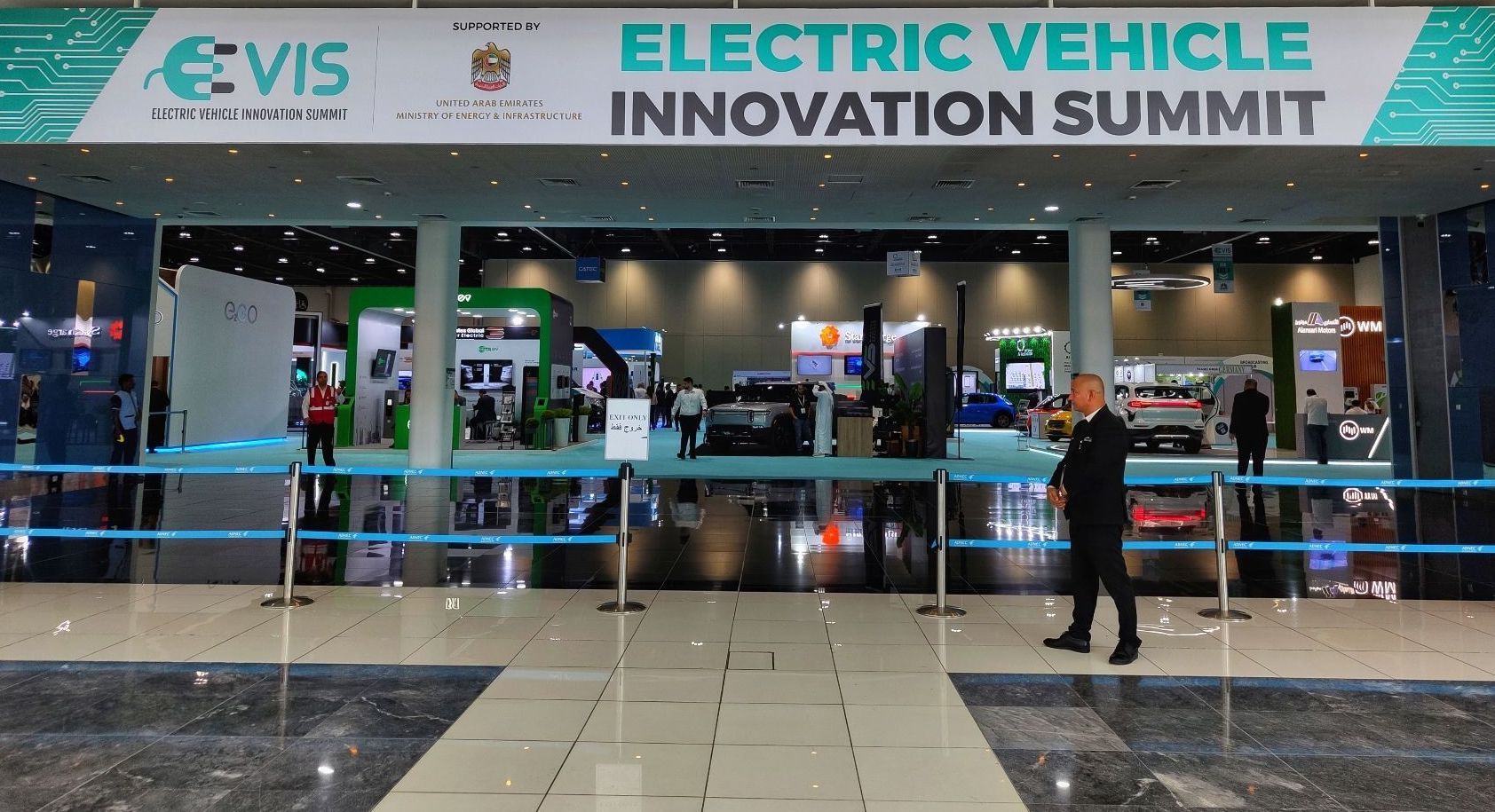Electrifying Fleets: Why Now Is the Right Time
Published:
Electric Vehicle Innovation Summit (EVIS) 2023, Abu Dhabi May 29-31, 2023
Electrifying Fleets: Why Now Is the Right Time
Moove’s Head of EV, Swagat Chopra recently attended the Electric Vehicle Innovation Summit (EVIS) 2023 in Abu Dhabi speaking on “Electrifying Fleets: Why now is the right time?”. Joining him on the panel were moderator, Mark Haddad, Partner at Strategy&, Raji Hattar, Chief Sustainability Officer at Aramex, Nicolas Soucaille, General Manager UAE at Blacklane and Carlos Montenegro, Managing Director of Fleet Strategy at Al-Futtaim.
The panel explored the reasons why now is the opportune time to electrify fleets, the challenges involved, and the potential solutions to accelerate this transition. Here are our key takeaways from the discussion that we think you’ll agree are ‘Top of Agenda’ items for EV transitioning.
Introduction
The transition to electric vehicles (EVs) is gaining significant momentum globally, and the United Arab Emirates (UAE) is no exception. With EV sales in the UAE growing at an impressive Compound Annual Growth Rate (CAGR) of over 28%, the shift towards electrifying fleets, particularly in the commercial sector, is becoming increasingly evident.
Growing EV Sales in the UAE
The UAE has witnessed a substantial increase in EV sales in recent years. The CAGR of over 28% signifies a strong market demand and an increasing acceptance of electric vehicles. This growth is especially prominent in commercial fleets, with a significant share of the EV market expected to be dominated by them, particularly from 2022 onwards.
 Swagat Chopra, Head of EV, Moove
Swagat Chopra, Head of EV, Moove
Urgent Need for Large Corporations to Transition
Large corporations have a crucial role to play in the transition to EVs. As major contributors to greenhouse gas emissions, their adoption of electric vehicles can significantly impact reducing carbon footprints and promoting sustainability. By electrifying their fleets, these corporations can showcase environmental leadership while benefiting from EVs’ operational advantages.
The Challenge of EV Charging Infrastructure
While the benefits of electrifying fleets are apparent, one of the significant obstacles lies in establishing a robust and accessible EV charging infrastructure. Bringing together the public and private sectors to enable a seamless charging experience remains a pressing challenge. A comprehensive and widespread charging network is essential to alleviate range anxiety and encourage EV adoption among fleet operators. We launched the first of our brand-new DC charging points in Dec 2022 in Dubai to service over 200 EVs daily. Moove is committed to meeting its climate impact goals, helping the UAE meet its electrification targets & assisting our partner platforms to reach their zero emissions targets.
“Electrifying fleets presents a significant opportunity to accelerate the adoption of electric vehicles and promote sustainability in the UAE. While the benefits of electrifying fleets are clear, one of the significant obstacles is establishing a robust and accessible EV charging infrastructure. Bringing together the public and private sectors to enable a seamless charging experience remains a pressing challenge.”
Swagat Chopra, Head of EV at Moove.
Significance of Electrifying Ride-Hailing Fleets
Due to the sheer number of kilometres they cover, ride-hailing fleets have the potential to substantially impact the transition to electric vehicles. In fact, the electrification of these fleets can result in a nine-fold greater impact compared to the electrification of private vehicles alone. Recognising this potential, it becomes imperative to prioritise the electrification of commercial fleets to maximise the environmental benefits.
Overcoming Challenges for EV Adoption
Affordability, availability of fit-for-purpose vehicles, lack of suitable charging infrastructure, and range anxiety are among the significant challenges hindering the widespread adoption of EVs. To address these barriers, concerted efforts are required from various stakeholders. Governments and industry players must collaborate to offer financial incentives, develop affordable EV models, and invest in charging infrastructure expansion. Public DC fast charging infrastructure, in particular, plays a crucial role in the smooth operation of commercial vehicles.

Role of Private Players in Charging Infrastructure
Opening up the charging infrastructure market to private players can be highly beneficial to accelerate the expansion of the charging network. This move will increase the number of charging stations and encourage healthy competition and innovation in the market. Collaboration between public and private sectors can ensure a comprehensive and robust charging infrastructure that caters to the needs of both commercial and private vehicle segments.
Importance of Education and Support
While establishing the necessary infrastructure is critical, education and support are equally vital for the successful operation of EV fleets. Fleet operators and drivers need to be educated about the benefits of EVs, charging protocols, and maintenance requirements. Training programs, incentives, and technical support can empower fleet operators to integrate electric vehicles into their operations seamlessly.
Conclusion
Electrifying fleets presents a significant opportunity to accelerate the adoption of electric vehicles and promote sustainability in the UAE. With the country witnessing substantial growth in EV sales, particularly in the commercial sector, the time is ripe for large corporations and fleet operators to make the transition. However, challenges such as charging infrastructure, affordability, and range anxiety must be addressed through collaborative efforts.
#EVIS2023 took place May 29-31 at ADNEC, Abu Dhabi, UAE.